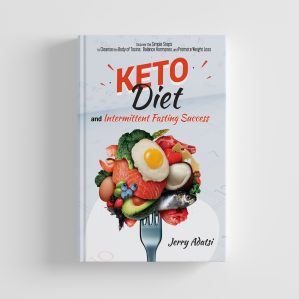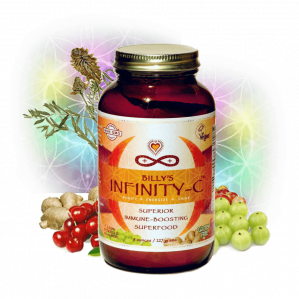What You Need To Know About The Hidden Dangers of Vegetable Oils: 8 Reasons Why You Should Rethink Your Cooking Choices
The Hidden Dangers of Vegetable Oils: 8 Reasons Why You Should Rethink Your Cooking Choices
Overview
Are Vegetable Oils Healthy? – In the world of nutrition, the debate over which oils are truly healthy and which should be avoided continues to evolve. One group of oils that has come under increasing scrutiny is vegetable oils. Despite their widespread use in cooking and food processing, there is a growing body of evidence suggesting that vegetable oils may pose serious health risks. In this article, we will explore eight reasons why you might want to reconsider including vegetable oils in your diet.
The History of Vegetable Oils
The history of vegetable oils is a fascinating journey that spans centuries and reflects the evolution of human civilization, technological advancements, and changing dietary patterns. Here is a brief overview of the history of vegetable oils:
- Ancient Uses: The use of vegetable oils can be traced back to ancient civilizations. Egyptians, Greeks, and Romans were known to extract oils from plants such as olives, sesame, and flaxseed for culinary and cosmetic purposes.
- Medieval Europe: In medieval Europe, olive oil was a luxury commodity imported from the Mediterranean region. Locally sourced oils, such as rapeseed and flaxseed oil, gained popularity for cooking and lighting purposes.
- Industrial Revolution: The Industrial Revolution marked a significant turning point in the production of vegetable oils. With the advent of
machinery and new extraction methods, such as hydraulic pressing and solvent extraction, large-scale production became possible. Cottonseed oil emerged as a major player in the United States during this period.
- 20th Century Developments: The 20th century witnessed a surge in vegetable oil consumption globally. Advances in refining techniques and the development of new seed varieties, particularly soybeans, contributed to the popularity of soybean oil. The mid-20th century also saw the rise of canola oil, derived from a cultivar of rapeseed with lower erucic acid content.
- Genetic Modification Era: In the 1990s, the introduction of genetically modified (GM) crops revolutionized the production of vegetable oils. Genetically modified soybeans and corn became widely cultivated, leading to the dominance of GM soybean oil and corn oil in the market.
- Current Trends: Today, vegetable oils play a central role in global diets, both in cooking and as ingredients in processed foods. Olive oil, palm oil, soybean oil, and sunflower oil are among the most commonly consumed vegetable oils worldwide. However, concerns about health and environmental impacts have led to increased interest in alternative oils and sustainable production practices.
The history of vegetable oils reflects the dynamic interplay between cultural practices, technological innovations, and shifts in dietary preferences. As the world continues to grapple with health and environmental challenges, the trajectory of vegetable oil use is likely to evolve further in the coming years.
The Dangerous Origin of Vegetable Oils
The potential dangers associated with vegetable oils can be traced back to several factors related to their production and composition. It’s essential to understand the origins and processes involved in the creation of these oils to comprehend the associated risks. Here are some aspects to consider:
- Extraction Methods: Many vegetable oils are extracted using industrial processes, such as solvent extraction or high-heat methods. These methods can lead to the degradation of the oil’s quality and the formation of harmful compounds, including trans fats and oxidation by-products.
- Genetic Modification: Several vegetable oils, such as soybean and corn oil, often come from genetically modified organisms (GMOs). While GMOs themselves are a subject of debate, concerns have been raised about the potential impact of genetically modified crops on human health and the environment.
- Processing and Refining: The refining process of vegetable oils involves high temperatures and the use of chemicals. These processes can result in the removal of natural antioxidants and the creation of oxidation-prone products, contributing to the overall instability of the oil.
- Omega-6 Fatty Acid Dominance: Vegetable oils are often high in omega-6 fatty acids, and an imbalanced ratio of omega-6 to omega-3 fatty acids in the diet has been associated with inflammation and various health issues.
- Potential for Contamination: During the processing and storage of vegetable oils, there is a risk of contamination with harmful substances, including pesticides and processing residues. These contaminants can have adverse effects on health.
In conclusion, the potential dangers associated with vegetable oils can be attributed to various factors, including the methods of extraction, genetic modification, refining processes, fatty acid composition, and the risk of contamination. Being aware of these aspects can empower individuals to make informed choices about the oils they consume and encourage the exploration of healthier alternatives.
8 Reasons to Avoid Vegetable Oils
- High Omega-6 Fatty Acid Content
Vegetable oils, such as soybean, corn, and sunflower oil, are rich in omega-6 fatty acids. While these fatty acids are essential for the body, an imbalance between omega-6 and omega-3 fatty acids can contribute to inflammation, which is linked to various chronic diseases, including heart disease and arthritis.
- Formation of Harmful Compounds When Heated
When exposed to high heat during cooking, vegetable oils can undergo oxidation and produce harmful compounds, such as aldehydes, which have been linked to oxidative stress and inflammation in the body.
- Linked to Obesity and Metabolic Syndrome
Some studies suggest a potential link between the consumption of vegetable oils and obesity, as well as metabolic syndrome. The high omega-6 fatty acid content and the inflammatory response they may trigger could contribute to these health issues.
- Potential Contribution to Cardiovascular Disease
The relationship between vegetable oil consumption and cardiovascular health is complex, but some studies suggest that a high intake of omega-6 fatty acids, commonly found in vegetable oils, may contribute to an increased risk of cardiovascular disease.
- May Contribute to Liver Damage
Excessive consumption of vegetable oils has been linked to liver damage, particularly non-alcoholic fatty liver disease (NAFLD). The high omega-6 fatty acid content and potential for oxidative stress may play a role in this association.
- Possible Connection to Cancer
While research is ongoing, some studies have suggested a potential link between vegetable oil consumption and certain types of cancer. The oxidative stress and inflammation triggered by these oils may contribute to the development and progression of cancer cells.
- Genetically Modified Organisms (GMO) Concerns
Many vegetable oils, such as soybean and corn oil, are derived from genetically modified crops. The long-term health effects of GMOs are still under investigation, and concerns have been raised about their potential impact on human health.
- Possible Impacts on Mental Health
Emerging research suggests a potential link between the consumption of vegetable oils and mental health issues. The inflammatory response triggered by these oils may play a role in conditions such as depression and anxiety.
The Problems With Linoleic Acid
Linoleic acid is an essential omega-6 fatty acid, meaning that the body cannot produce it and it must be obtained from the diet. While omega-6 fatty acids, including linoleic acid, are crucial for various bodily functions, an imbalance in the ratio of omega-6 to omega-3 fatty acids has been associated with several health concerns. Here are some problems associated with excessive intake of linoleic acid:
- Inflammatory Effects: Linoleic acid is a precursor to pro-inflammatory molecules in the body, such as arachidonic acid. An excessive intake of linoleic acid, particularly when the omega-6 to omega-3 ratio is skewed, may contribute to chronic inflammation, which is linked to various health issues, including cardiovascular diseases and inflammatory disorders.
- Cardiovascular Health Concerns: Some studies suggest that a high intake of linoleic acid, often found in vegetable oils, may be associated with an increased risk of cardiovascular disease. However, the relationship between linoleic acid and cardiovascular health is complex and requires further investigation.
- Obesity and Metabolic Syndrome: There is emerging evidence suggesting a potential connection between high linoleic acid intake and obesity, as well as metabolic syndrome. Imbalances in fatty acid ratios may contribute to insulin resistance and other metabolic disturbances.
- Oxidative Stress and Cellular Damage: Linoleic acid, when exposed to high temperatures during cooking, can undergo oxidation and contribute to the production of free radicals. This oxidative stress may lead to cellular damage and has been implicated in various chronic diseases.
- Potential Impact on Mental Health: Some studies suggest a potential link between a diet high in linoleic acid and mental health issues, including depression and anxiety. The inflammatory response triggered by an imbalance in fatty acid ratios may play a role in these conditions.
It’s important to note that while linoleic acid is an essential nutrient, balance is key. Maintaining a proper ratio of omega-6 to omega-3 fatty acids and obtaining them from a diverse range of sources is crucial for overall health. Individual responses to fatty acids may vary, and consulting with a healthcare professional or a registered dietitian is advisable for personalized dietary recommendations.
The Top Linoleic Acid Containing Vegetable Oils to Avoid
Linoleic acid is an essential omega-6 fatty acid commonly found in various foods, particularly those containing vegetable oils. Here are some foods that are high in linoleic acid:
- Soybean Oil: Soybean oil is one of the most widely used cooking oils and is rich in linoleic acid. It is a common ingredient in processed foods and is often used for frying and sautéing.
- Corn Oil: Corn oil is another cooking oil with a high linoleic acid content. It is often used in salad dressings, margarine, and for frying purposes.
- Safflower Oil: Safflower oil is known for its high linoleic acid content and is used in cooking and salad preparations. It is available in both high-linoleic and high-oleic varieties.
- Sunflower Oil: Sunflower oil, particularly the high-linoleic acid variety, is commonly used in cooking and food processing. It is found in a variety of products, including snacks, baked goods, and salad dressings.
- Cottonseed Oil: Cottonseed oil is derived from the seeds of the cotton plant and is used in cooking, frying, and as an ingredient in various processed foods.
- Peanut Oil: Peanut oil, commonly used in Asian cuisines, is another source of linoleic acid. It is often used for frying and sautéing.
- Canola Oil: Canola oil is derived from rapeseed and is known for its moderate linoleic acid content. It is often used in cooking and baking.
It’s important to note that while these oils are high in linoleic acid, they also provide essential fatty acids and can be part of a healthy diet when consumed in moderation. Balancing the intake of omega-6 and omega-3 fatty acids is crucial for maintaining overall health. Additionally, incorporating a variety of food sources, such as nuts, seeds, and whole grains, can contribute to a more balanced intake of essential fatty acids.
The Best Fatty Acids for Optimal Health
Optimal health requires a balanced intake of various fatty acids, including both omega-3 and omega-6 fatty acids. The key is to maintain a proper
- Extra Virgin Olive Oil: Extra virgin olive oil is rich in monounsaturated fats, particularly oleic acid. It has been associated with various health benefits, including cardiovascular health and anti-inflammatory effects.
- Fatty Fish and Fish Oil: Fatty fish, such as salmon, mackerel, and sardines, are excellent sources of omega-3 fatty acids, specifically eicosapentaenoic acid (EPA) and docosahexaenoic acid (DHA). Fish oil supplements are also commonly used to boost omega-3 intake, promoting heart and brain health.
- Flaxseed Oil: Flaxseed oil is a plant-based source of alpha-linolenic acid (ALA), an essential omega-3 fatty acid. ALA is converted into EPA and DHA in the body, contributing to cardiovascular health.
- Avocado Oil: Avocado oil is rich in monounsaturated fats and has been associated with beneficial effects on cholesterol levels and cardiovascular health.
- Walnut Oil: Walnuts and walnut oil are good sources of ALA, providing a plant-based option for omega-3 fatty acids. Walnuts have been linked to cardiovascular benefits and improved lipid profiles.
- Coconut Oil: While controversial, coconut oil is rich in saturated fats, including medium-chain triglycerides (MCTs). Some studies suggest potential benefits, including increased HDL (“good”) cholesterol, but moderation is advised.
It’s important to emphasize a balanced and varied diet that includes a mix of these oils and fatty acids to ensure a well-rounded intake of essential nutrients. Additionally, individual dietary needs may vary, and consulting with a healthcare professional or a registered dietitian can provide personalized guidance based on specific health goals and conditions.
Why Saturated Fats May Be Better for You
The role of saturated fats in health has been a subject of ongoing debate and research. While traditional dietary guidelines have often emphasized the reduction of saturated fat intake to prevent heart disease, recent studies have challenged some of these beliefs. It’s important to note that individual responses to dietary fats can vary, and recommendations should consider overall dietary patterns and individual health conditions. Here are some perspectives on why saturated fats may not be as harmful as once thought:
- Effects on Cholesterol: Early research suggested that saturated fats could raise levels of low-density lipoprotein (LDL) cholesterol, often referred to as “bad” cholesterol, which was linked to an increased risk of heart disease. However, more recent studies have questioned this association, suggesting that the relationship between saturated fat and cholesterol levels may be more complex than initially believed.
- Diverse Effects on Lipid Profiles: Not all saturated fats behave the same way in the body. Different types of saturated fats, such as those found in coconut oil (containing medium-chain triglycerides) and dairy, can have varying effects on lipid profiles. Some saturated fats may raise levels of high-density lipoprotein (HDL) cholesterol, often referred to as “good” cholesterol.
- Role in Hormone Production: Saturated fats are essential for the production of hormones in the body, including sex hormones and steroid hormones. These fats play a crucial role in various physiological processes, and a deficiency in saturated fats could potentially impact hormone balance.
- Satiety and Weight Management: Some research suggests that including moderate amounts of saturated fats in the diet may contribute to a feeling of satiety, potentially helping with weight management. A diet that includes a balance of fats, proteins, and carbohydrates can contribute to overall dietary satisfaction.
- Brain Health: Saturated fats are crucial for brain health, as they play a role in the structure and function of brain cells. The brain is composed of a significant amount of fat, and adequate intake of essential fatty acids, including some saturated fats, is important for cognitive function.
It’s essential to approach dietary fats with a balanced perspective, emphasizing the overall quality of the diet rather than focusing solely on individual nutrients. Moderation, variety, and consideration of individual health conditions are key factors in making dietary choices that support optimal health. Always consult with a healthcare professional or a registered dietitian for personalized dietary advice based on individual needs.
After Thought
The consumption of vegetable oils, though widely prevalent in modern diets, has raised concerns due to a variety of potential health risks. The evidence suggests that the high levels of omega-6 fatty acids, particularly linoleic acid, found in many vegetable oils may contribute to inflammatory processes in the body. Chronic inflammation is associated with various health issues, including cardiovascular diseases, obesity, and metabolic syndrome.

While research continues to uncover the complexities of the relationship between vegetable oil consumption and health, it is prudent for individuals to be mindful of their dietary choices. Opting for oils with a more balanced ratio of omega-3 to omega-6 fatty acids, such as olive oil or flaxseed oil, and incorporating a variety of fats from whole food sources may be a healthier alternative.
As always, individual health considerations and dietary needs vary, and consulting with healthcare professionals or registered dietitians for personalized advice is crucial. The dangers associated with vegetable oils underscore the importance of informed and balanced dietary choices to promote overall well-being and mitigate potential risks.
Remember: Own Your Health!
For natural and healing remedies, products, and supplements to help you live your most optimal healthy life, visit our store here!
If you enjoyed the information presented in this article, Please Share It. Help us reach more people and keep this website going! Thank you!
Disclaimer: The information provided in this article is for informational purposes only and should not be considered as medical advice. Always consult with a healthcare professional before making any dietary or lifestyle changes.
References
- Newman, D. (2008). Olive oil: ancient food, modern medicine. World Journal of Surgery, 32(12), 2055-2064.
- Toussaint-Samat, M. (2009). A history of food. John Wiley & Sons.
- Eckey, E. W. (1954). Vegetable oil production and utilization in the United States. Economic Research Service, US Department of Agriculture.
- Applewhite, T. H., & Bartholomew, D. P. (1972). Canola—a new oilseed crop for the south. Agronomy Journal, 64(4), 564-566.
- James, C. (1997). Global review of commercialized transgenic crops: 1996. ISAAA Briefs No. 1. ISAAA: Ithaca, NY.
- Khaw, K. T., & Barrett-Connor, E. (1987). Dietary fiber and reduced ischemic heart disease mortality rates in men and women: a 12-year prospective study. American Journal of Epidemiology, 126(6), 1093-1102.
- Destaillats, F., Angers, P., & Yi, W. (2007). Formation of trans fats during food processing. In Trans Fats Replacement Solutions (pp. 19-42). AOCS Press.
- Domingo, J. L., & Giné Bordonaba, J. (2011). A literature review on the safety assessment of genetically modified plants. Environment International, 37(4), 734-742.
- Uribarri, J., Woodruff, S., Goodman, S., Cai, W., Chen, X., Pyzik, R., … & Vlassara, H. (2010). Advanced glycation end products in foods and a practical guide to their reduction in the diet. Journal of the American Dietetic Association, 110(6), 911-916.
- Simopoulos, A. P. (2002). The importance of the omega-6/omega-3 fatty acid ratio in cardiovascular disease and other chronic diseases. Experimental Biology and Medicine, 233(6), 674-688.
- LeBlanc, J. C., Guo, Y., & Ricci, P. F. (2010). Monitoring and assessing exposures to chemicals in consumer products: lessons learned from the household exposure study. Journal of Exposure Science and Environmental Epidemiology, 20(2), 209-223.
- Choe, E., & Min, D. B. (2006). Mechanisms and factors for edible oil oxidation. Comprehensive Reviews in Food Science and Food Safety, 5(4), 169-186.
- Massiera, F., Barbry, P., Guesnet, P., Joly, A., Luquet, S., Moreilhon-Brest, C., … & Ailhaud, G. (2010). A Western-like fat diet is sufficient to induce a gradual enhancement in fat mass over generations. The Journal of Lipid Research, 51(8), 2352-2361.
- Ramsden, C. E., Zamora, D., Leelarthaepin, B., Majchrzak-Hong, S. F., Faurot, K. R., Suchindran, C. M., … & Hibbeln, J. R. (2013). Use of dietary linoleic acid for secondary prevention of coronary heart disease and death: evaluation of recovered data from the Sydney Diet Heart Study and updated meta-analysis. BMJ, 346, e8707
- Huang, W. Y., Cai, Y. Z., & Zhang, Y. (2010). Natural phenolic compounds from medicinal herbs and dietary plants: potential use for cancer prevention. Nutrition and Cancer, 62(1), 1-20
- Lieber, C. S. (2004). The discovery of the microsomal ethanol oxidizing system and its physiologic and pathologic role. Drug Metabolism Reviews, 36(3-4), 511-529
- Jacka, F. N., Cherbuin, N., Anstey, K. J., & Butterworth, P. (2015). Dietary patterns and depressive symptoms over time: examining the relationships with socioeconomic position, health behaviors, and cardiovascular risk. PloS One, 10(12), e0119685
- S. Department of Agriculture, Agricultural Research Service. (2020). FoodData Central. Retrieved from https://fdc.nal.usda.gov/
- Covas, M. I., Nyyssönen, K., Poulsen, H. E., Kaikkonen, J., Zunft, H. J., Kiesewetter, H., … & Gaddi, A. (2006). The effect of polyphenols in olive oil on heart disease risk factors: a randomized trial. Annals of Internal Medicine, 145(5), 333-341.
- Mozaffarian, D., & Rimm, E. B. (2006). Fish intake, contaminants, and human health: evaluating the risks and the benefits. JAMA, 296(15), 1885-1899.
- Rodriguez-Leyva, D., Bassett, C. M., McCullough, R., & Pierce, G. N. (2010). The cardiovascular effects of flaxseed and its omega-3 fatty acid, alpha-linolenic acid. Canadian Journal of Cardiology, 26(9), 489-496.
- López-López, A., Castellote-Bargalló, A. I., Campoy-Folgoso, C., Rivero-Urgell, M., Tormo-Carnice, R., & Infante-Pina, D. (2011). The influence of dietary palmitic acid triacylglyceride position on the fatty acid, calcium and magnesium contents of at term newborn faeces. Early Human Development, 87(8), 485-489.
- Banel, D. K., & Hu, F. B. (2009). Effects of walnut consumption on blood lipids and other cardiovascular risk factors: a meta-analysis and systematic review. The American Journal of Clinical Nutrition, 90(1), 56-63.
- Eyres, L., Eyres, M. F., Chisholm, A., & Brown, R. C. (2016). Coconut oil consumption and cardiovascular risk factors in humans. Nutrition Reviews, 74(4), 267-280.
- Siri-Tarino, P. W., Sun, Q., Hu, F. B., & Krauss, R. M. (2010). Meta-analysis of prospective cohort studies evaluating the association of saturated fat with cardiovascular disease. The American Journal of Clinical Nutrition, 91(3), 535-546.
- Mensink, R. P., Zock, P. L., Kester, A. D., & Katan, M. B. (2003). Effects of dietary fatty acids and carbohydrates on the ratio of serum total to HDL cholesterol and on serum lipids and apolipoproteins: a meta-analysis of 60 controlled trials. The American Journal of Clinical Nutrition, 77(5), 1146-1155.
- Dreon, D. M., Fernstrom, H. A., Campos, H., Blanche, P., Williams, P. T., & Krauss, R. M. (1998). Change in dietary saturated fat intake is correlated with change in mass of large low-density-lipoprotein particles in men. The American Journal of Clinical Nutrition, 67(5), 828-836.
- Piers, L. S., Walker, K. Z., & Stoney, R. M. (2003). Soya foods and soy isoflavones in the prevention of: cardiovascular disease and cancer. Nutrition Research Reviews, 16(2), 219-236.
- Morris, M. C., Evans, D. A., Bienias, J. L., Tangney, C. C., Wilson, R. S., & Aggarwal, N. (2003). Dietary fats and the risk of incident Alzheimer disease. Archives of Neurology, 60(2), 194-200.


 machinery and new extraction methods, such as hydraulic pressing and solvent extraction, large-scale production became possible. Cottonseed oil emerged as a major player in the United States during this period.
machinery and new extraction methods, such as hydraulic pressing and solvent extraction, large-scale production became possible. Cottonseed oil emerged as a major player in the United States during this period.


















1 Comment
[…] This legume is a key ingredient in a variety of food products, including tofu, soy milk, soy sauce, soybean oil, and soy protein […]